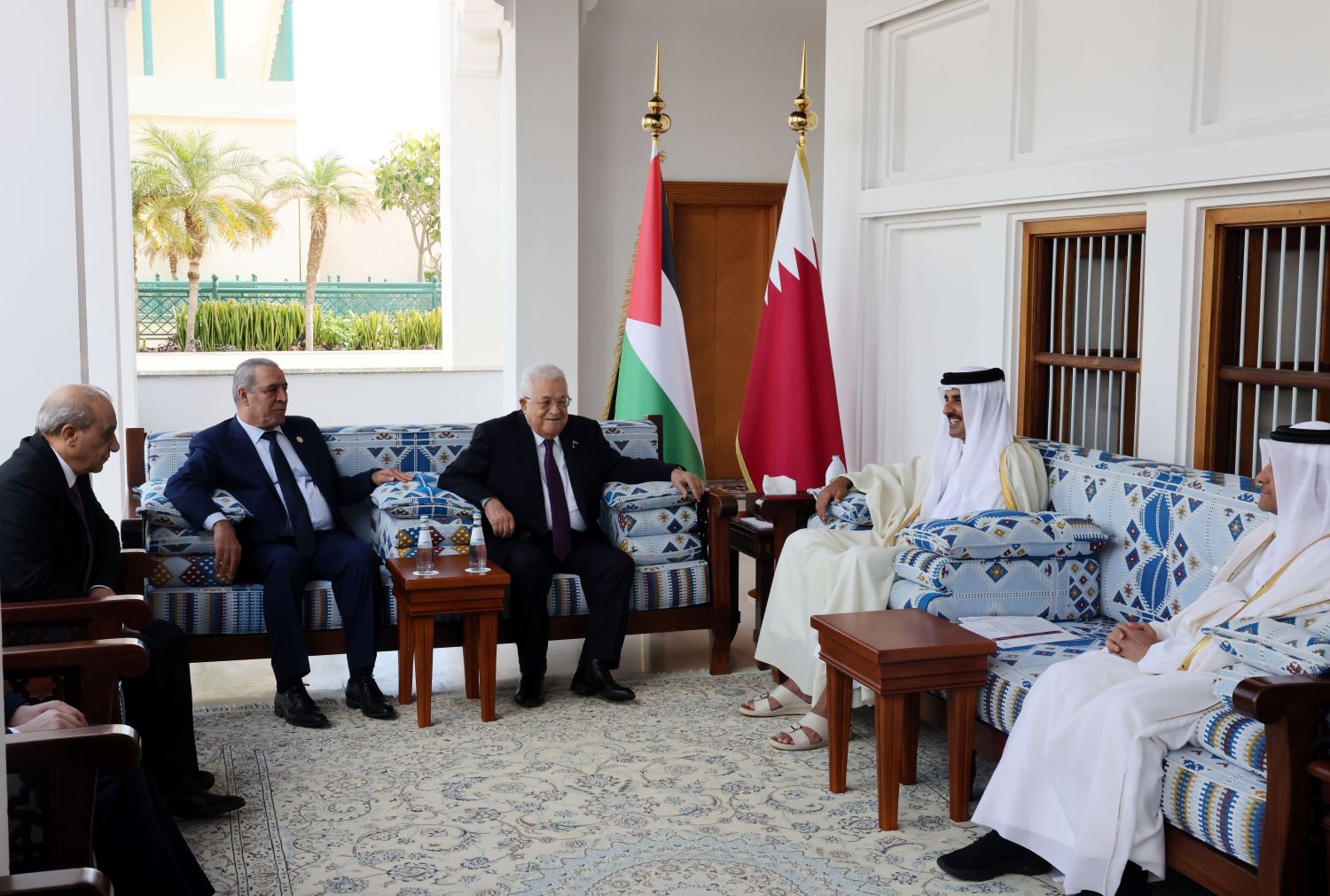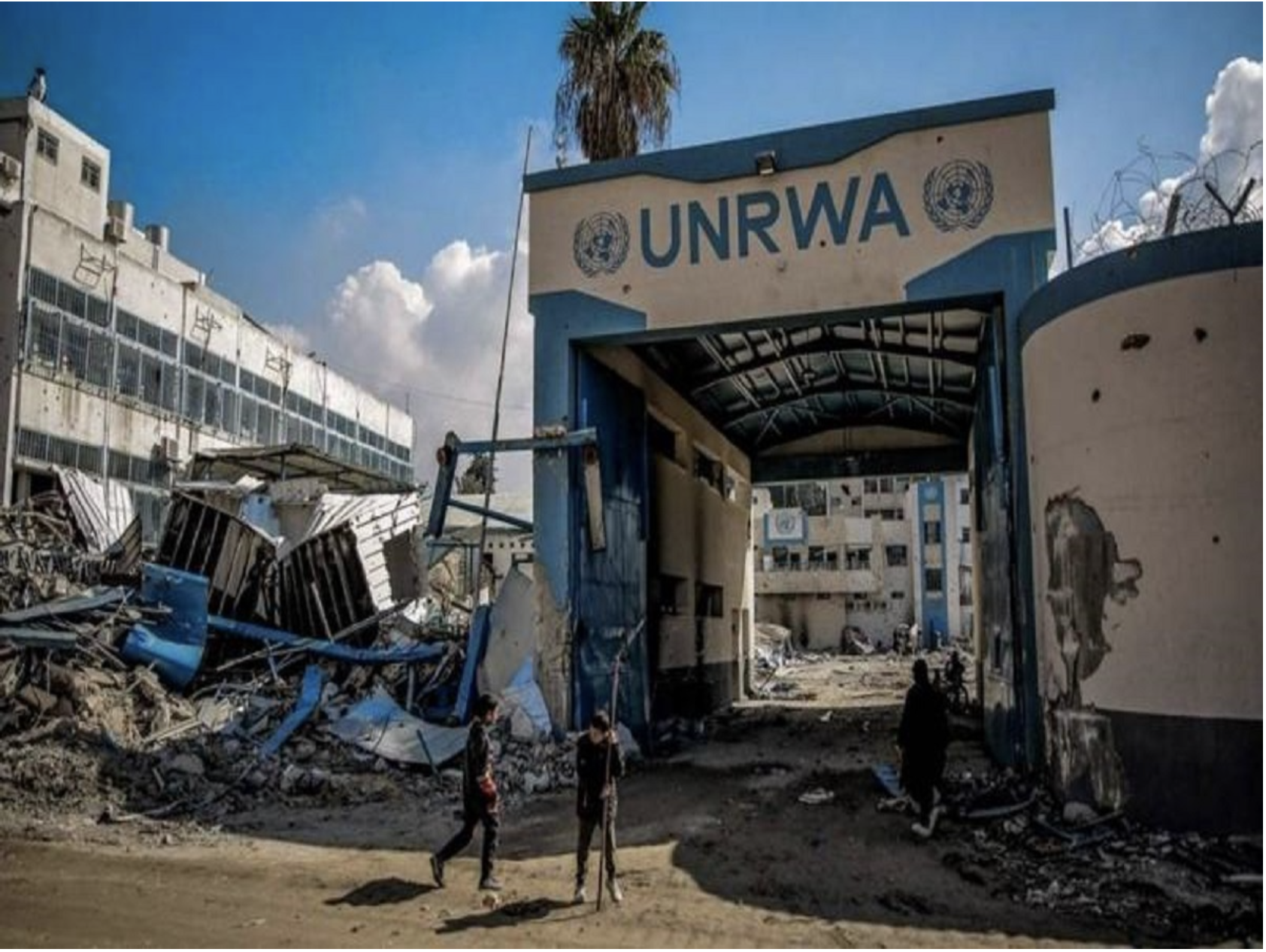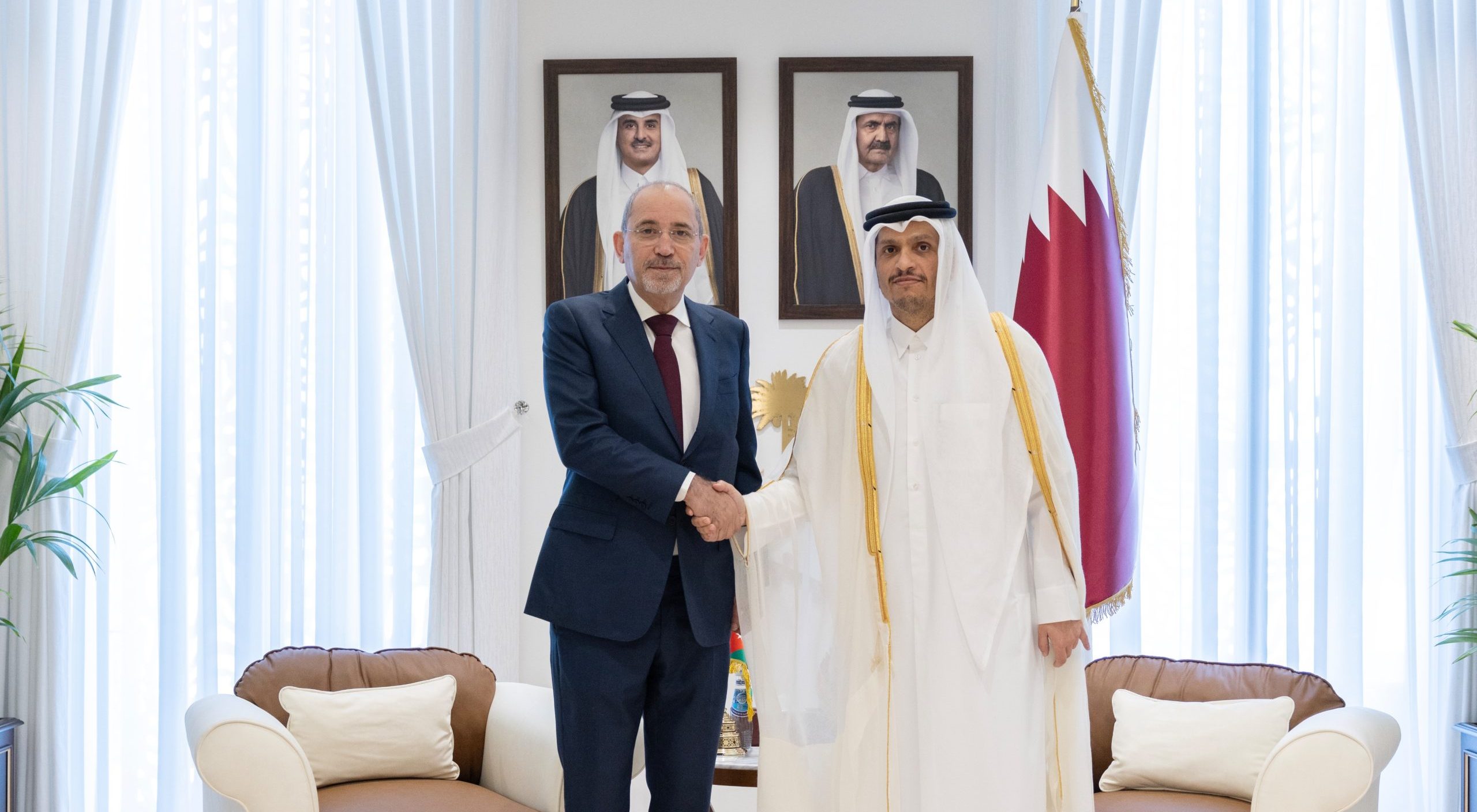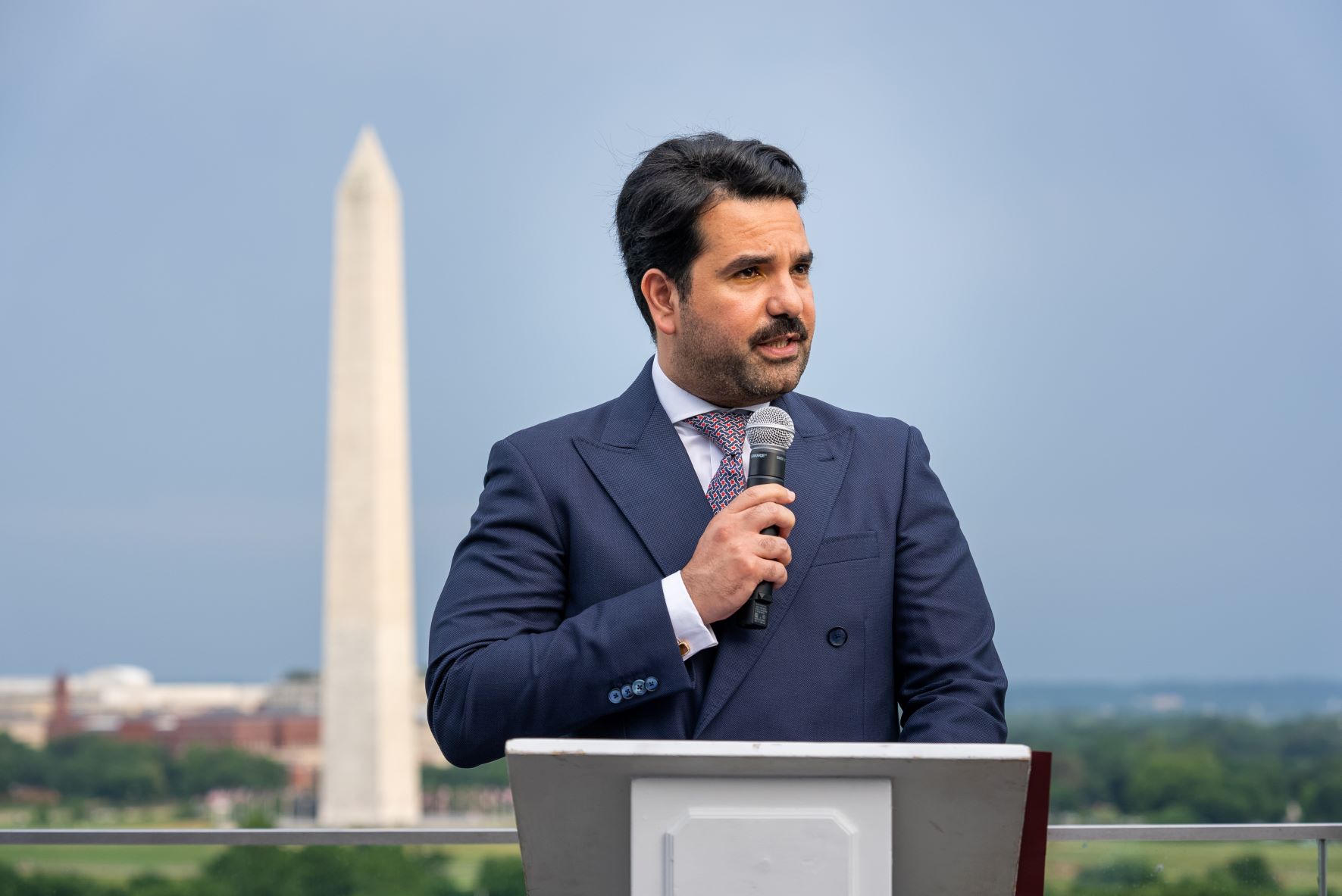Israel launched deadly attacks on Rafah on Sunday evening that went on until Monday morning, killing at least 100 Palestinians.
Qatar’s Amir Sheikh Tamim bin Hamad Al Thani and Palestinian President Mahmoud Abbas discussed the Gaza ceasefire efforts on Monday in Doha as Israel pummels Rafah under its plans to invade the area.
During the meeting, President Abbas warned against the “grave dangers” of the possible Israeli invasion of Rafah, where more than 1.5 million displaced Palestinians have been crammed up since the start of the war, Palestine’s news agency (Wafa) reported.
“President Abbas stressed the need for the intervention of the international community, especially the U.S. administration, to oblige Israel to stop its rabid war against the Palestinian people, and to stop its attack on the city of Rafah, which, if carried out, will lead to a humanitarian catastrophe,” Wafa reported.
Abbas also praised Qatar’s current mediation efforts that aim to reach a permanent ceasefire in Gaza and enable the entry of humanitarian aid into the Strip.
The president also met a number of Qatari officials, including the Chairman of the Board of Trustees of the Humanitarian Funds of the Organization of Islamic Cooperation, Sheikh Dr. Abdulaziz bin Abdulrahman bin Hassan Al-Thani.
The meeting dealt with humanitarian aid and relief efforts in Gaza.
The powerful Gulf mediator has been at the forefront of de-escalation efforts in Gaza since the beginning of the brutal Israeli onslaught on October 7, 2023, which has killed over 28,340 Palestinians and wounded at least 67,984 others.
Qatar is a major non-NATO U.S. ally and has hosted the Hamas political office since 2012 following Washington’s request to establish a channel of communication with the group. The move has since allowed Doha to successfully mediate between the conflicting parties on several occasions.
Doha’s successful mediation last year, alongside Cairo, resulted in a temporary truce that lasted between November 24 and December 1. The pause saw the release of at least 110 Israeli and foreign captives from Gaza as well as 240 Palestinian women and children from Israeli prisons.
Palestinian ambassador to Qatar, Munir Ghannam, told Voice of Palestine radio on Sunday that the Gulf nation “plays an important role in the international efforts and mediation to reach a ceasefire.”
“Therefore, coordination with Qatar, also with Egypt, is of special importance, to bring an end to this aggression against our people,” Ghannam said.
Talks over a new deal appeared to gain momentum following a meeting in Paris on January 28 between officials from Qatar, Egypt, Israel, and the U.S.
U.S. Secretary of State Antony Blinken then visited the region last week, including Qatar, for the fifth time since the start of the war as he scrambled to secure a new captives release and truce deal.
Hamas announced on Thursday that it had sent a delegation to Cairo to follow up on the latest proposal on the table after Israel rejected the group’s demands for a complete withdrawal from Gaza and a ceasefire.
However, Israel’s planned invasion of Rafah has appeared to place another obstacle in the talks as it would mark a major escalation in the war as it would displace Palestinians from Gaza to neighbouring Egypt.
Israeli military chief Yoav Gallant said on February 1 that Israel will expand its ground invasion to Rafah. Israeli Prime Minister Benjamin Netanyahu’s office then issued a statement on February 9 saying it was keen on “eliminating Hamas by leaving four Hamas battalions in Rafah.”
Netanyahu also ordered the Israeli military “to submit to the Cabinet a combined plan for evacuating the population and destroying the battalions”. Rafah has already been subjected to deadly bombardment since last week after Israel carried out deadly attacks in Khan Younis.
Qatar condemned Israel’s threats to invade Rafah on Saturday while urging the United Nations Security Council to prevent Israel from “committing genocide.”
Israel launched deadly attacks on Rafah on Sunday evening that went on until Monday morning, killing at least 100 Palestinians, including women and children, and wounded hundreds others, according to Wafa.
“Local sources said that Israeli warplanes launched approximately 40 airstrikes, targeting numerous homes and mosques sheltering displaced individuals across the city. This was accompanied by intense artillery shelling and naval bombardment on Rafah,” Wafa added.
In a statement on Monday, Doctors Without Borders (MSF) warned that the ground invasion of Rafah will have “potentially catastrophic consequences.”
“Nowhere in Gaza is safe, and repeated forced displacements have pushed people to Rafah, where they are trapped in a tiny patch of land and have no options[…]We call on the government of Israel to immediately halt this offensive, and to all supporting governments including the United States, to take concrete action to bring about a complete and sustained ceasefire,” Meinie Nicolai, MSF Director General, said.
Washington has backed Tel Aviv’s war under the pretext of fighting Hamas, despite the majority of those killed being women and children.
However, tensions between the allies have been on the rise, with U.S. President Joe Biden describing Israel’s military campaign against Hamas as “over the top.”







